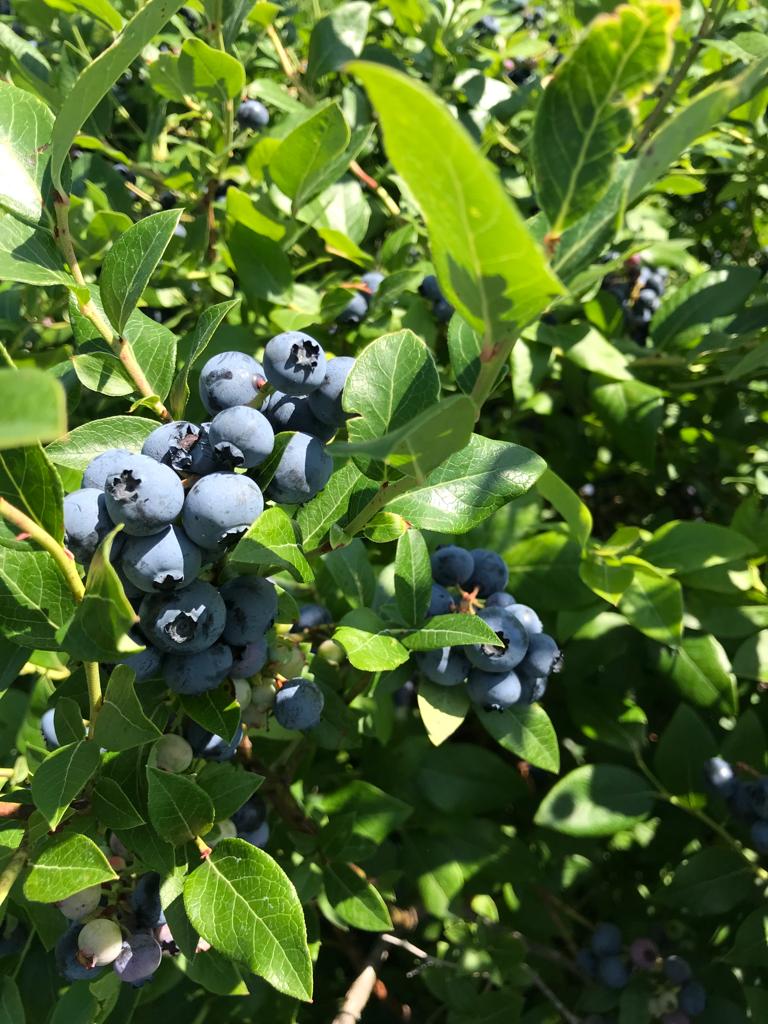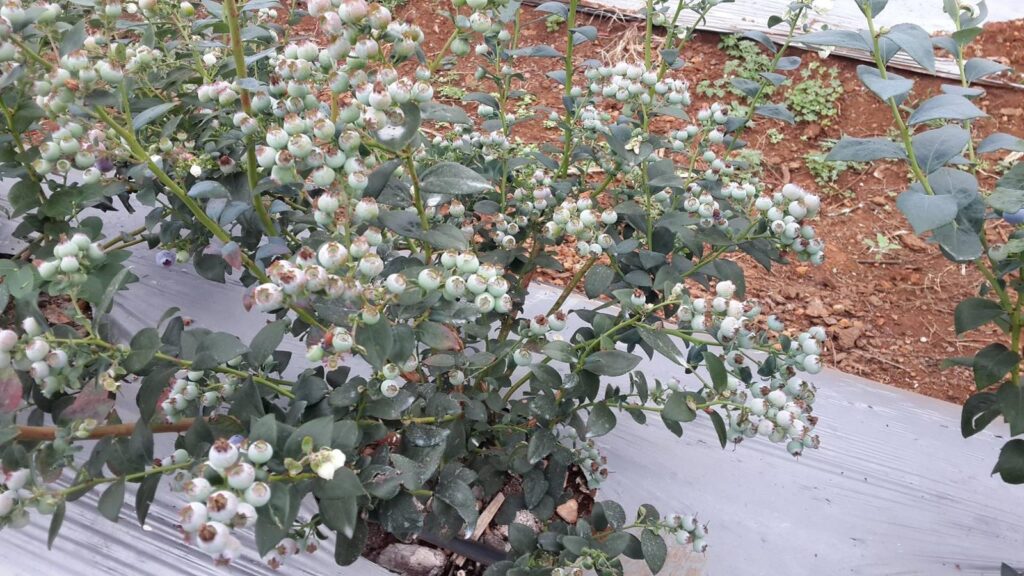The Northeast region of India along with Darjeeling and other higher Himalayan regions, hold great potential for diversifying agricultural practices, with their favorable climatic conditions and abundant land resources. Blueberry farming, a relatively new and promising venture, is gaining attention due to the region’s unique environmental factors.
Blueberry farming can be a fruitful opportunity for people in the rugged mountain regions where the difficult terrain poses huge challenge to agriculture. Berries and fruit farming can be adapted to suit the mountain terrains and can be cultivated even on uneven land surface.

The Northeastern states of India, including Assam, Meghalaya, Arunachal Pradesh, and parts of Nagaland and Mizoram, offer an ideal climate for blueberry cultivation. The region experiences cool winters and moderate summers, mimicking the natural habitat of blueberry plants. The acidic soil prevalent in many areas of the Northeast, coupled with the right pH level, is well-suited for blueberry cultivation.
Blueberries farming can be hugely profitable for farmers as they are highly sought-after in the global market as they are packed with antioxidants, vitamins, and fiber. The growing health consciousness among consumers presents a significant opportunity for farmers in Northeast India to tap into the blueberry market. Blueberries have been linked to numerous health benefits, including improved heart health, brain function, and cancer prevention.

Blueberry farming is a relatively new concept in India, and even more so in the Northeast. This presents a unique advantage to early adopters, as there is currently low competition in the market. As the awareness and demand for blueberries continue to grow, farmers in the region have the opportunity to establish themselves as pioneers and meet the rising demand both domestically and internationally.
If done right, Blueberry farming has the potential to be a lucrative venture in Northeast India. The high market value of blueberries combined with their long shelf life allows farmers to fetch a premium price for their produce. Furthermore, blueberry cultivation can provide diversification for farmers who may be reliant on traditional crops, reducing the risks associated with a monoculture-based farming system.

Blueberry plants are perennials and can continue to produce fruit for several years. This longevity reduces the need for frequent replanting and contributes to sustainable agriculture practices. Additionally, blueberry farming can aid in soil conservation, erosion control, and water resource management, promoting environmental sustainability in the region.
Blueberry farming in Northeast India presents a promising opportunity for agricultural diversification and economic growth. With its suitable climate, conducive soil conditions, and increasing demand for healthy and nutritious fruits, the region has all the necessary ingredients for successful blueberry cultivation.
Farmers can capitalize on the low competition, tap into domestic and international markets, and contribute to sustainable agricultural practices. By embracing blueberry farming, Northeast India can transform its agricultural landscape and become a significant player in the global blueberry industry.
Himalayan Florica is an exclusive supplier of patented varieties of Blueberry plants from the famous Hartmann’s Plant Company, USA. Reach out to us at himalayanflorica.slg@gmail.com to know more about Blueberry farming and plants.

